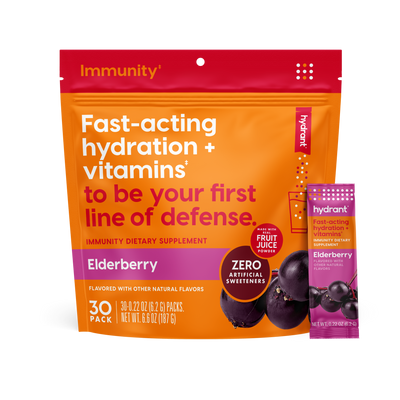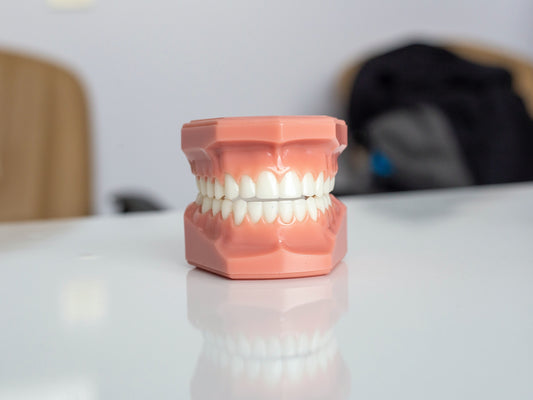According to a recent study from the Journal of Strength and Conditioning Research, your body can alleviate mild dehydration in 45 minutes with 20.3 oz (600ml) of water.
The time it takes for your body to rehydrate mainly depends on how dehydrated you are. In this article, we take an in-depth look.
The time it takes for your body to rehydrate depends on how dehydrated you are
If you are severely dehydrated, it’s likely that you will be hospitalized and put on intravenous hydration for up to 24 hours to rehydrate your body, or until you’re able to drink oral rehydration fluids yourself.[1] When you’re severely dehydrated, you need to put back a LOT of fluid, and it needs to be balanced with the nutrients that your body usually contains.

If you were to suddenly put a lot of water back into your body after being severely dehydrated, it might cause your body to go into a form of shock, so you need to pace yourself[2]
At less severe dehydration levels that are still serious, it’s possible that you’ll only be drinking oral rehydration fluids. CDC guidelines for those suffering from dehydration through Cholera recommend drinking up to 1 liter of ORS fluid per hour for an adult, and children 20ml / kg of body weight. [3] Want to learn the fastest way to rehydrate? Read about it here.
Dehydration Symptoms: How to tell if you're dehydrated
You are dehydrated when you lose more fluids from your body than are taken in, for example, when you have stomach flu mixed with diarrhea or if you consume alcohol. Dehydration can keep the body from functioning normally, and as a result, you may experience symptoms of dehydration. Symptoms of dehydration include:
- Dry mouth
- Dry skin
- Light-headedness
- Urinating less frequently
- Fatigue
- Sluggishness
- Changes in blood pressure
- Changes in heart rate
- Changes in body temperature
There are different levels of dehydration: mild, moderate and severe dehydration and many more signs that indicate you are dehydrated. If you are experiencing severe symptoms, we recommend seeking medical care immediately.
Is your routine dehydrating?
Are you concerned about your own hydration levels? Take the quiz below to find the best Hydrant for your hydration routine.
How long does dehydration last?
If you don’t treat dehydration by drinking water and in some cases taking on electrolytes in the right quantities, your dehydration may last indefinitely.
If it progresses for long enough, you can die from dehydration. Most of us know this - you can go weeks without food, but only days without water. New York Times has reported results of a study that showed that 75% of Americans were chronically dehydrated.

This meant that they were not meeting their daily requirement for water intake, and were staying in a dehydrated state for long periods of time! In that scenario, recovering from dehydration requires a complete overhaul to your routine, to ensure you're making it a daily habit to consume enough water.
So what is Hydrant?
We made Hydrant to be an effective way to rehydrate your body quickly, based on World Health Organization guidelines for oral rehydration solutions. ORS can have up to 3x the electrolytes of traditional carb-based sports drinks and contains only 6 grams of sugar.
Drinking enough water each day can be hard for any number of reasons and using Hydrant makes hydration easier. Our oral rehydration solution contains electrolytes, sodium, potassium, magnesium, and zinc that mimic your body's natural electrolyte makeup. When you lose water from your body, most of the time you also lose electrolytes. If you just replace the water, but not the electrolytes, you further imbalance your body. To perform at your best throughout the day, it’s best to quickly replenish your body, using a solution that mirrors your biological electrolyte and water balances.

It's easy to fit into your routine, and many of our customers start their day with a Hydrant to make sure they are at their baseline hydration level from the get-go. Because it’s in a convenient powder pack, wherever you need quick recovery from dehydration, you can mix it with water and get hydrated fast.
Other stories about dehydration
If you want to read more about what dehydration does to the human body, click here.
References:
At Hydrant, we like to go one step further with our references and add some information that gives context to the link. We know that not everyone has the time to comb through an academic article, so give quick summaries next to each link for you!
[1] https://www.ncbi.nlm.nih.gov/pmc/articles/PMC419333/ (This is a meta-analysis of randomized control studies comparing oral rehydration against intravenous rehydration. Randomized control trials are very high quality studies, and meta-analyses look at many of them to draw conclusions.)
[2] https://www.ncbi.nlm.nih.gov/pubmedhealth/PMH0082773/ (This link is a long form article titled: "Principles and protocols for intravenous fluid therapy". It's an in depth clinical guide for medical professionals.)
[3] https://www.cdc.gov/cholera/treatment/rehydration-therapy.html (CDC page on Oral Rehydration)



























